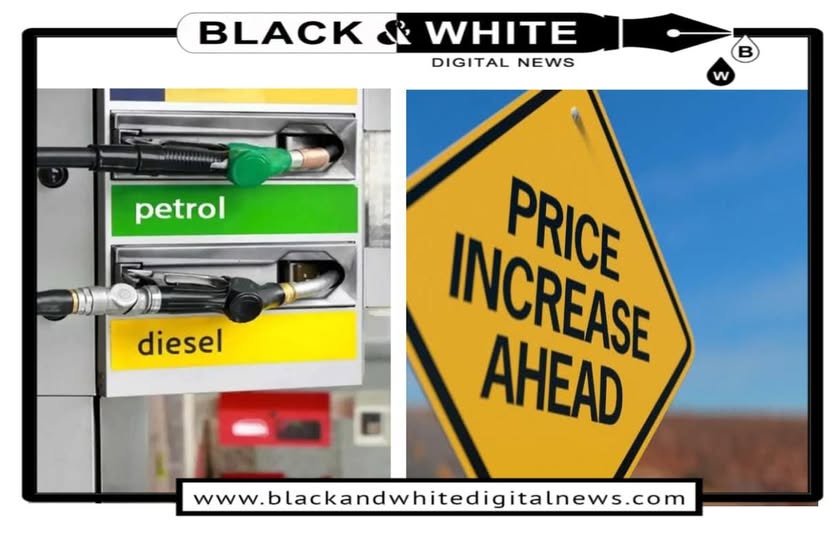Fuel Shock in J&K: Petrol, Diesel, and Gas Prices Set to Surge from April 1
||Black and White Digital News||
||Parvinder Singh March 28, 2025||
Srinagar: The people of Jammu and Kashmir are set to face yet another financial burden as the UT government has announced a significant tax hike on petrol, diesel, aviation turbine fuel (ATF), and natural gas. The new taxation policy, formalized under notification S.O. 76 by the Finance Department, will take effect from April 1, 2025, pushing fuel prices higher across the region.
According to the notification signed by Santosh D Vaidya, IAS, Principal Secretary to the Government, Finance Department, the revised taxation structure will see petrol taxed at 24% minus ₹3.50 per litre, with an additional cess of ₹2.00 per litre. Diesel oil will now attract a 16% tax minus ₹4.50 per litre, along with a cess of ₹1.00 per litre. Meanwhile, ATF will be subject to a 5% tax, and natural gas will be taxed at 21%.
The notification has been circulated to key financial and taxation authorities, including the Principal Secretary to the Lieutenant Governor and the Excise Commissioner, J&K. The order supersedes all previous tax notifications, making the new rates the governing taxation policy for fuel in the UT.
Rising Concerns: Transport Sector and Consumers Brace for Impact.
With fuel being a key component in the economy, the hike is expected to have a ripple effect across industries, affecting transportation costs, commodity prices, and overall inflation. Local transport associations and business leaders have already raised concerns over the move, warning of a direct impact on daily commuters, freight charges, and essential goods.
Chairman, All J&K Transporters Welfare Association, Karan Singh Wazir said,
“This increase will lead to an unavoidable surge in transportation costs, which will eventually be passed on to consumers. We strongly urge the administration to reconsider the additional cess to prevent further economic strain on the common people”.
For fuel station owners, the new policy signals an immediate adjustment in pricing mechanisms. With petrol and diesel rates likely to surge, private vehicle owners and commercial operators are expected to feel the pinch the most.
Government’s Rationale: Revenue Generation vs Public Backlash:
The UT administration has justified the tax revision as a necessary step in balancing revenue generation amid fluctuating global fuel prices. With the region heavily dependent on imported fuel, officials argue that a streamlined taxation system is crucial for maintaining fiscal stability. However, this explanation has failed to satisfy many, as public sentiment leans towards frustration and anger over what is seen as an additional financial burden in an already challenging economic climate.
April 1 Deadline: The Countdown Begins:
With just days left before the tax hikes take effect, both businesses and common citizens are scrambling to adjust to the new reality. While government justifications focus on economic sustainability, the ground reality suggests a looming wave of price hikes in goods, services, and transportation—a concern that could lead to wider protests and discontent in the weeks to come.
For now, April 1, 2025, marks the beginning of a more expensive journey for J&K residents—a journey that will test their resilience in the face of rising living costs.




